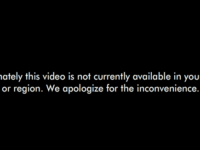When Le Devoir director Brian Myles appeared before the Senate committee studying Bill C-18 last month, he closed by urging the committee to pass the legislation quickly, stating “the time to act is now. We can’t wait two years between the passage of the bill and the CRTC regulations, because the delay will benefit opponents, giving them time to organize and undermine the spirit and the letter of the law.” While Myles acknowledged that claims regarding “theft” of news content by Internet platforms was overstated, he nevertheless expressed full support for the bill. One month later, the Online News Act is now law, Meta has confirmed that it will block news sharing before it takes effect, and the government is reportedly in last ditch negotiations with Google to stop it from doing the same.
Latest Posts
The Law Bytes Podcast, Episode 172: Marc Edge on Bill C-18 and the Postmedia Effect
Bill C-18 passed the House and Senate and received royal assent last week, leading Meta to confirm that it will be blocking news sharing on its Facebook and Instagram platforms given the economic costs and uncertainty with the law. Meanwhile Google is reportedly in discussions with the government about whether regulations might be crafted in a way to avoid a similar outcome.
I’ve covered Bill C-18 extensively on the Law Bytes podcast and on this website, but the history behind the legislation and associated lobbying provides valuable context for the current situation. Marc Edge has written several books on the newspaper industry. His most recent work, The Postmedia Effect, helps makes sense of Bill C-18 as a continuum of lobbying for government support that has resulted in hundreds of millions of dollars. He joins me on the podcast to discuss.
As Government Moves to Cut Off Bill C-18 Debate, the Reality is Artificial Intelligence Renders Bill Already Out of Date
The Online News Act, the government’s legislative initiative to make Google and Meta pay hundreds of Canadian media companies for links to their news content, is likely to become law before politicians break for the summer later this week. In fact, despite plans for an evening debate on the bill last night, the government interrupted MP Martin Champoux in mid-speech, cut the debate short, and gave notice that it plans to limit debate altogether this week (the irony that the government is cutting off debate on a bill it claims is essential to holding it to account should not be lost on anyone). The bill will likely be passed by the House by mid-week. Since the government is rejecting two Senate amendments, the bill will go back to the Senate for approval.
The lion’s share of attention on Bill C-18 has thus far focused on the response of the two internet companies, as both have raised the prospect of blocking news content on their platforms if faced with new financial liability for linking. Yet my Globe and Mail op-ed argues that focus ignores a vital new reality that may already render the bill out of date.
The Law Bytes Podcast, Episode 171: What Just Happened? – A Half-Year Report on Canadian Digital Policy
With Parliament set to break this week for the summer, this week’s Law Bytes podcast provides a half-year report on what happened over the past six months. At the start of the year, I focused on five issues in 2023 preview: the role of Canadian Heritage, the increasing tensions over digital policy, the emergence of private members bills, wireless policy disputes, as well as privacy and AI regulation. The episode revisits these issues with an examination of how Bills C-11 and C-18 were pushed through the legislative process, the battles over wireless regulation in light of the Rogers-Shaw merger, and the failure to advance privacy and AI regulation.











